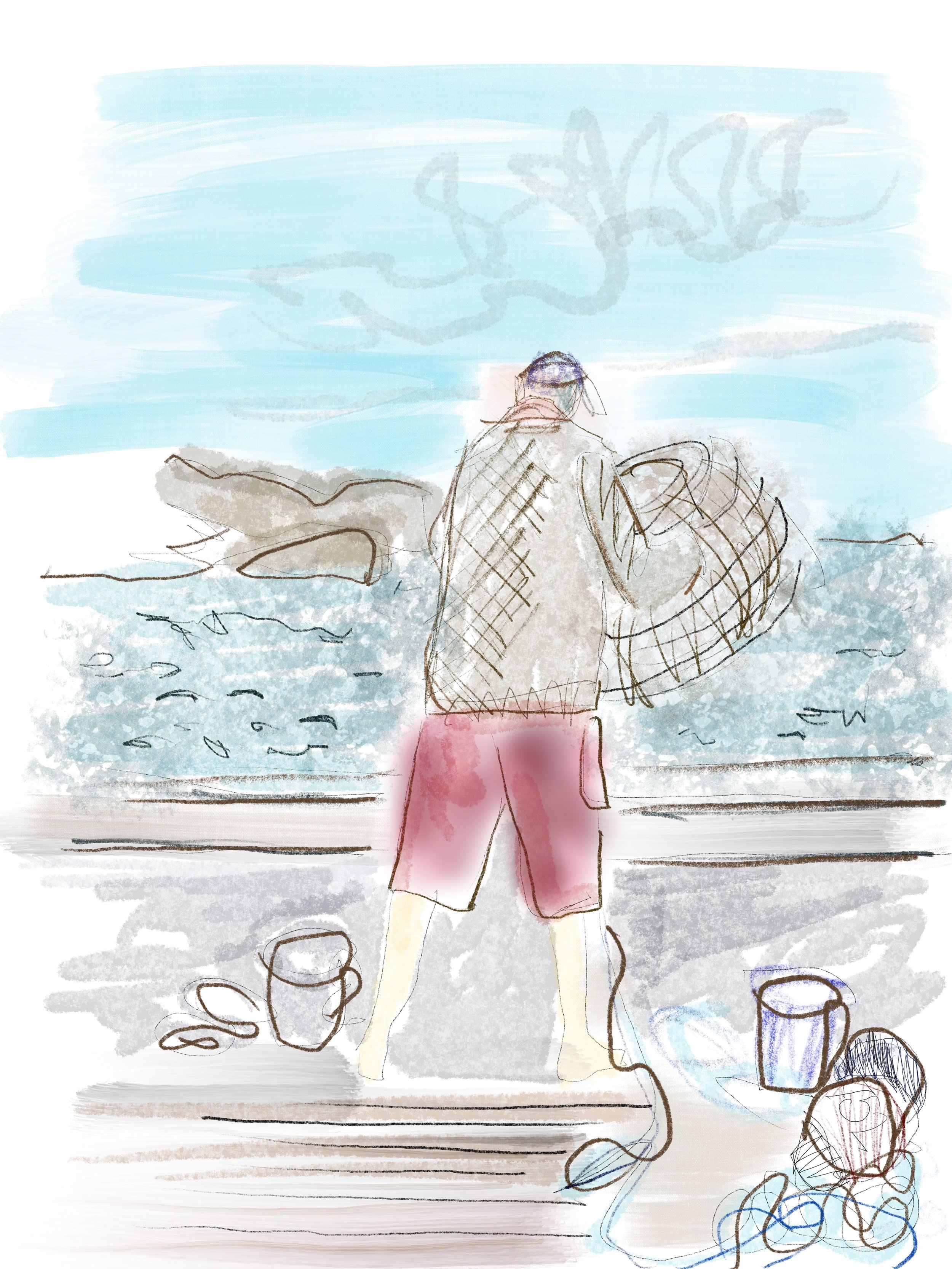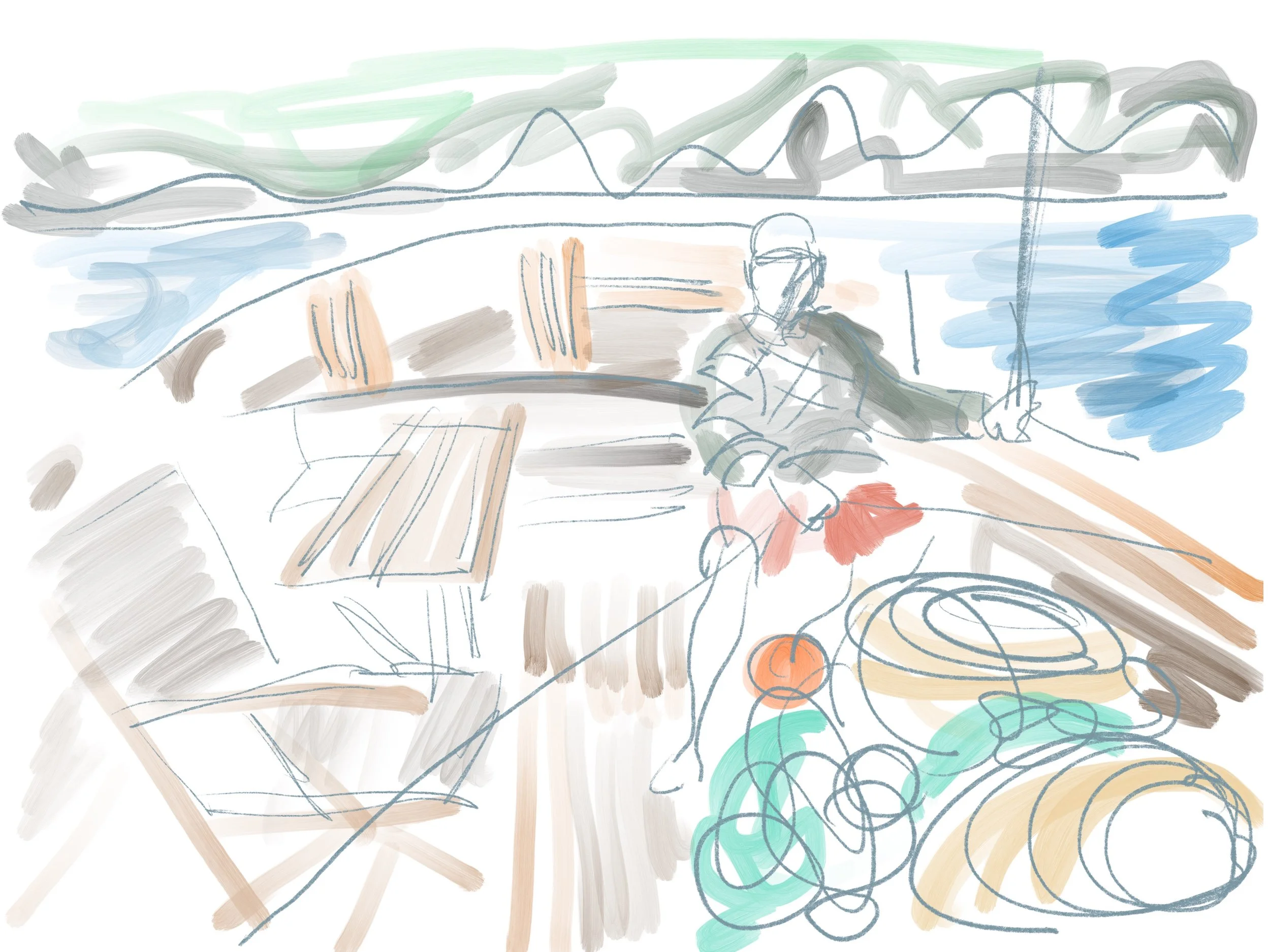Two Hands
Mark ‘fishing’ aboard WINTER COVE, Squally Cove, Deal Island November, 2024 Illustration by Sal Balharrie
What is the sound of one hand clapping? What is the colour of a white horse on the inside?
You may have encountered cryptic questions such as these. Koans or Riddles devised by Zen Buddhists to train young monks. The questions are intended to be mentally taxing. Easy, tidy answers don’t help us grow.
“Wrestling with a koan of your own—such as Why am I alive? or For what would I give my life?—can be a way to improve your emotional health and grow as a person.”
So writes Arthur C. Brooks for The Atlantic in his article, Three Ways to Become a Deeper Thinker. He goes onto explain the fact that trivial questions are easy to answer is no coincidence – “How do I get to the chandlery?” is a transactional ‘survival’ question and hence straightforward to answer. Where as, “Why do I love my husband?” if answered convincingly, is almost impossible to articulate without trivialising.
In 1931 Carl Jung wrote – “The greatest and most important problems of life are fundamentally insoluble.” Research shows that thinking through ‘knotty life questions’, those without clear answers, can evoke a dark mood without any biological explanation. This can be particularly difficult for adolescents pondering big questions about fate and death, meaninglessness and guilt.
Should tough questions be avoided? Of course not. Pondering and pushing through the ‘I don’t know’ leads to understanding. Brooks proposes as a society we have become ‘spiritually flabby’ and ‘psychically out of shape’ because we haven’t been getting in the reps of challenging existential questions. Our young people are facing a pandemic, an explosion of anxiety and depression – and Brooks asserts – this is not because we’re thinking too much about hard questions, but because we think too little.
Social Media has splintered our attention span (if you’ve made it this far into the article, high-five!) Are levels of sadness and fear in part to our philosophical sedentary lifestyles?





Back to the idea of one hand. On it’s own, one hand can not clap, but together, the sound of two hands clapping we know to be attention grabbing and in most parts, offering applause – a sound created by one human to indicate thanks or joy for another.
Now consider the idea of a hand to be metaphorical – something requiring of a second element - another ‘hand’ - to bring joy? For many of us – in particular readers of SWS – the other ‘hand’ is sailing. One life + sailing = joy. For others, it is the ability to express, to write, to paint, to draw – in other words art.
I made the images seen here in this article while on the water on a recent trip to the Kent Group and Flinders Island with wonderful friends aboard the Winter Cover. Making them, sharing them, gave me a great deal of joy.
So what’s the takeaway?
It’s hard to find joy when your head is filled with the fog of life’s hard questions. Brooks suggests three ways to shift it. One, schedule time for a mental work out – just like going to the gym, make time to think, make notes, use philosophical questions as springboards. Two, go for a long walk (or sail) – and think while you do it. Stay with it, make your brain ‘hurt’ with thinking. Three, invite boredom aka – put the phone down.
And perhaps, use the prompt of one hand. What is it that gives you joy? What do you need in your life to clap loudly?
//
All illustrations by Sal Balharrie

